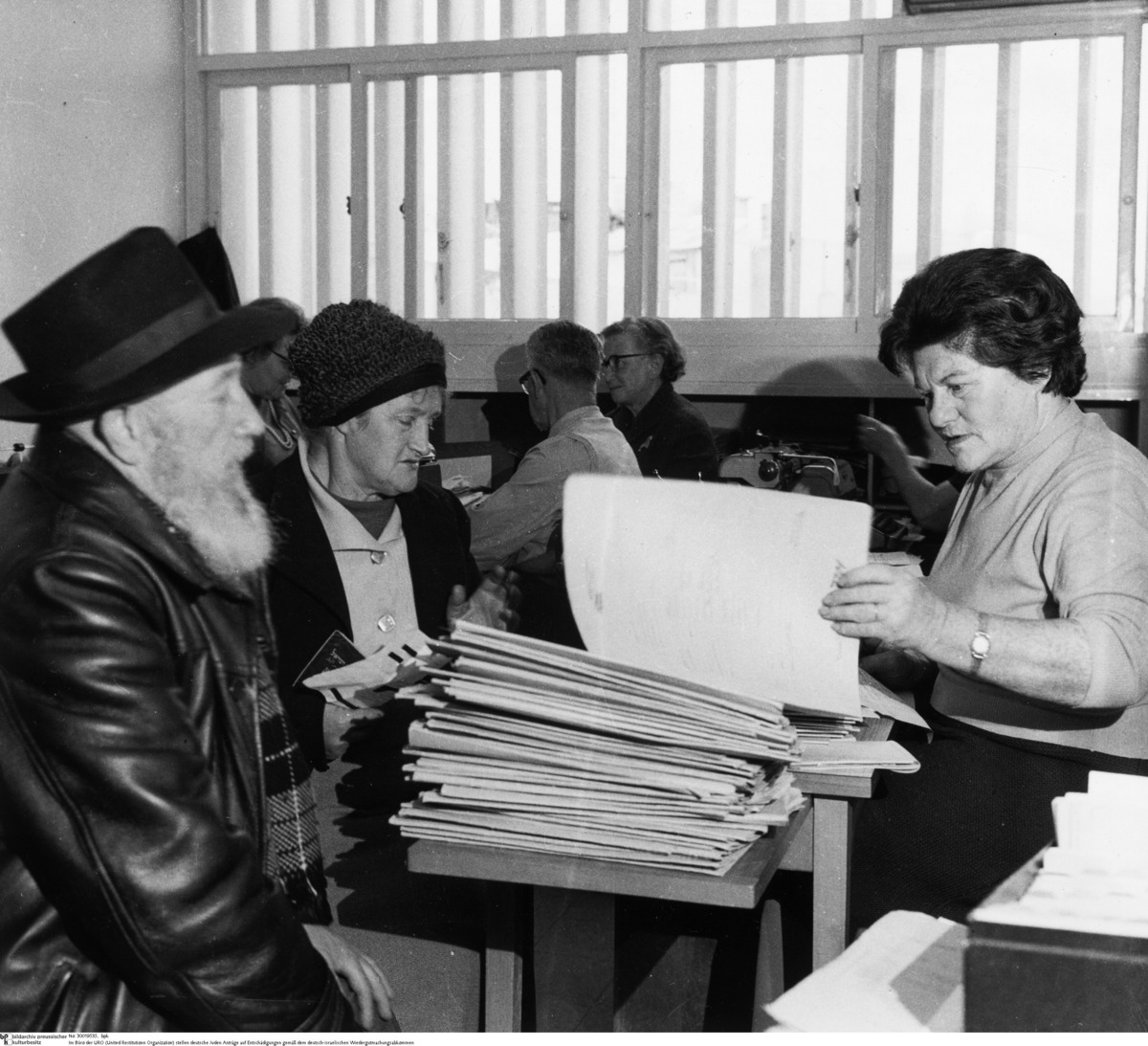Abstract
During the war, Jewish organizations had not only demanded the
restitution of property and compensation for individual Jewish victims
of Nazi persecution, they also called for collective compensation
payments. In November 1947, a ground-breaking law was passed in the
American occupation zone concerning the return of private assets to the
Jewish victims of Nazi Germany, and in May 1949 the British military
government followed suit. The United Restitution Organization (URO) was
founded in 1948 as a legal aid organization for Jewish restitution
matters with British foreign office sponsorship and as of 1949
administrative offices in London to support individual Jewish
compensation claims. In addition to its British headquarters, the
organization set up offices that same year in five German cities, as
well as in Israel, France, and the United States. In the mid-1950s, the
URO was also present in Argentina, Australia, Belgium, Brazil, Chile,
Canada, Sweden South Africa, and Uruguay.
On September 10, 1952, the Federal Republic of Germany signed a
restitution agreement with Israel that provided for collective
reparation payments of three billion DM to Israel and 450 million DM to
the Conference on Jewish Material Claims against Germany. Together with
the agreements made with the Jewish Claims Conference, the West German
federal government also established the Hague Protocol, in which it
committed itself to a program of reparations legislation. The Hague
Protocol and the First Restitution Law of 1953 (revised in 1956)
increased the number of people who were eligible for compensation and
thus also increased the number of people who needed legal aid from the
URO. All told, the URO represented around 300,000 clients and 450,000
claims. In the period up to 1968, it handled claims worth about 700
million DM.
